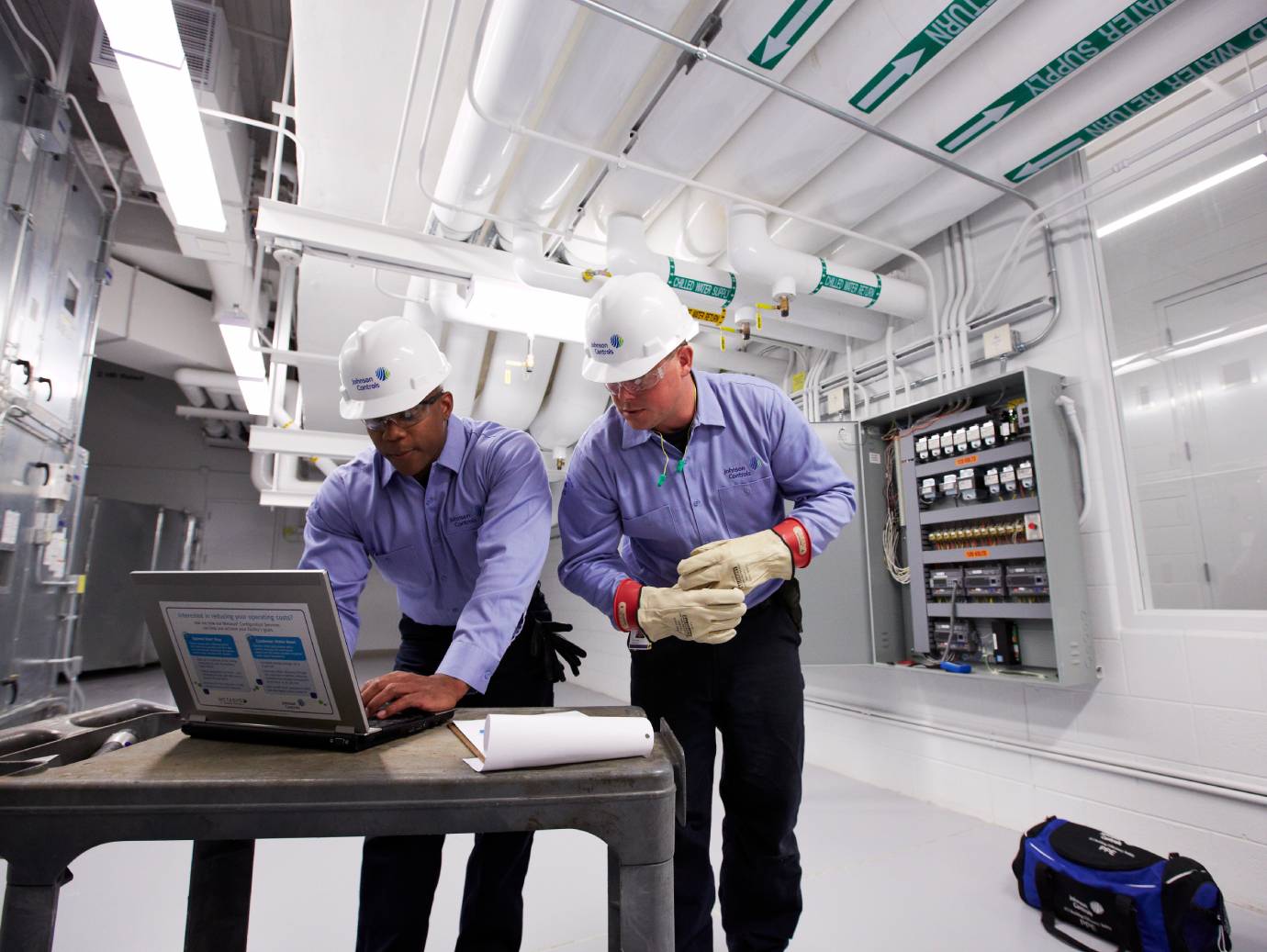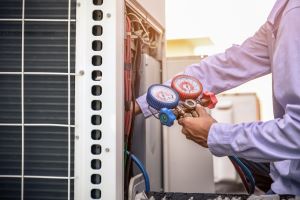Exactly How to Pick the Right Heating And Cooling System for Your Needs
Selecting the proper cooling and heating system is a critical choice that requires cautious factor to consider of various variables. Begin by assessing your home's dimension, layout, and unique demands, as these elements determine the essential ability and configuration of the system. In addition, developing a spending plan that encompasses installation and long-term functional prices is essential. As you weigh your choices, comprehending energy performance rankings and the ramifications of your neighborhood climate will certainly play a substantial role in your selection. Nonetheless, the myriad of system types offered can complicate this process, leading one to ask yourself which course inevitably results in ideal convenience and efficiency.
Examine Your Home Size
Assessing your home dimension is an essential first step in choosing the appropriate HVAC system. The size of your home straight affects the heating and cooling capacity required for efficient environment control. An a/c system that is too small will have a hard time to keep comfortable temperatures, resulting in boosted energy intake and endure the device. On the other hand, an oversized system can result in brief biking, inadequate moisture control, and ineffective procedure.
To accurately assess your home size, determine the square video footage of each area, thinking about factors such as ceiling height and the design. Additionally, consider the insulation high quality and the variety of home windows, as these elements affect thermal efficiency. Residences with open floor strategies may need various system setups compared to those with many split areas.
Utilizing the Guidebook J load computation approach can provide an extra exact estimate of your cooling and heating requires. This technique make up different variables, consisting of local environment, solar gain, and tenancy patterns. By carefully reviewing these elements, you can make certain that your chosen a/c system is appropriately sized, bring about boosted convenience, energy performance, and long life of the equipment.
Determine Your Spending Plan
Establishing your spending plan is a crucial step in the HVAC system choice process, as it establishes the parameters for your choices - DMAKS HVAC. An a/c system is a significant financial investment, and recognizing your financial limits will aid limit options that fit within your means
Begin by assessing not just the initial purchase cost but likewise installation prices, which can vary significantly depending upon the complexity of the project. Think about continuous expenses such as upkeep, repair services, and energy usage. A system may show up budget-friendly initially but can bring about higher expenses in time if it is much less effective.
It is recommended to allot a backup fund for unexpected expenditures that may arise during setup or initial system adjustments (DMAKS HVAC). Furthermore, explore financing alternatives or discounts that might be readily available, as these can reduce the problem of ahead of time expenses
Eventually, having a clear budget plan enables you to engage with HVAC professionals better, ensuring you obtain tailored guidance that lines up with your financial objectives and home requirements. By being persistent about your budget, you can make informed decisions that enhance convenience without endangering monetary security.
Evaluate Power Performance
Energy efficiency plays an essential duty in the total efficiency and cost-effectiveness of your heating and cooling system. When choosing a system, it is important to consider its power efficiency scores, as these figures straight affect your energy costs and see here environmental footprint. Try to find systems with a high Seasonal Power Effectiveness Proportion (SEER) for cooling down and a high Annual Gas Application Effectiveness (AFUE) ranking for heating. Higher scores suggest higher efficiency, indicating more comfort for much less energy intake.
Furthermore, consider the Energy Star qualification, which represents that the system fulfills rigorous effectiveness guidelines set by the Epa. Buying an Energy Star-rated cooling and heating system can cause substantial savings over time, specifically in areas with severe temperature changes.
Another element to review is the system's dimension and capability. A large or small unit can cause inadequacy and enhanced energy expenses. DMAKS HVAC. Appropriate sizing, often determined with a Manual J lots estimation, makes sure that the system runs at optimal effectiveness


Take Into Consideration Climate and Atmosphere
When picking a heating and cooling system, it is essential to think about the local climate and environmental problems, as these variables considerably affect the system's performance and performance. Various areas experience varying temperature extremes, humidity levels, and seasonal adjustments, every one of which effect home heating and content cooling demands.

Additionally, regional environmental variables, such as air quality and prospective allergens, must notify your choice. Solutions outfitted with advanced purification technologies can aid reduce toxins and supply cleaner air. In addition, take into consideration the energy sources readily available in your location-- some cooling and heating systems are more efficient when powered by gas or eco-friendly power sources.
Inevitably, straightening your cooling and heating system selection with your neighborhood climate and environmental factors to consider will lead to improved convenience, boosted performance, and reduced power costs.
Explore System Types and Functions
As house owners seek to optimize convenience and performance, exploring the different types of HVAC systems and their one-of-a-kind attributes ends up being necessary. The primary sorts of HVAC systems include main air conditioning, heatpump, ductless mini-split systems, and heaters. Each system provides distinct benefits customized to various needs and preferences.
Air conditioning systems provide uniform cooling throughout a home, making them optimal for bigger rooms. Heat pumps offer as both home heating and cooling options, utilizing electrical energy to move heat, which can lead to reduced power expenses. Ductless mini-split systems are coming to be significantly prominent due to their versatility and simplicity of installation, allowing homeowners to control the temperature level in private areas without substantial ductwork.

Conclusion
In verdict, selecting the ideal HVAC system demands mindful consideration of different factors, consisting of home size, budget restrictions, energy performance, neighborhood climate, and offered system types. A complete analysis of these elements makes sure ideal comfort and cost-effectiveness. By complying with an organized approach, house owners can make enlightened choices that line up with their specific needs and preferences, eventually bring about improved indoor air quality and energy cost savings.